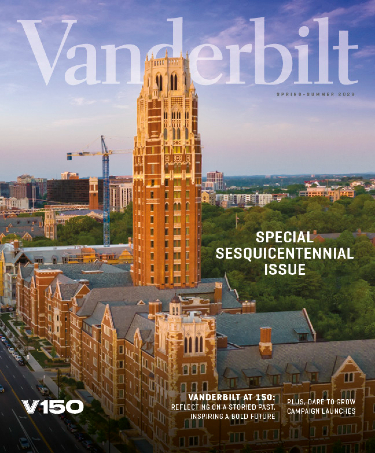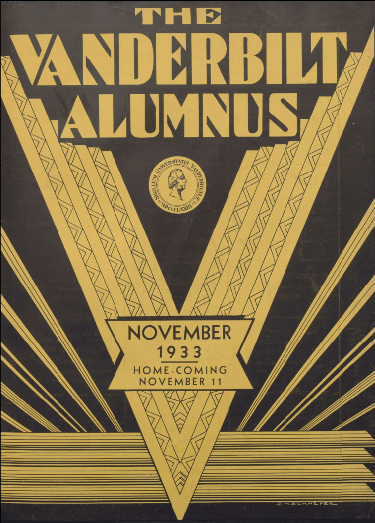
The complete archive of Vanderbilt University’s flagship publication has been fully digitized and is now available online, making more than a century of university history accessible to the Vanderbilt community and others around the globe.
The digitization project, led by the Jean and Alexander Heard Libraries’ Special Collections and University Archives, includes publishing the complete run of Vanderbilt Magazine and its predecessor, Vanderbilt Alumnus, on the JSTOR digital library of academic journals, books and primary sources.
Vanderbilt Magazine chronicles the university’s people and their impact on the world, Vanderbilt’s evolving campus landscape, noteworthy events and initiatives, athletics and more. The publication strives to promote a greater sense of connection among the university and its diverse community of alumni, students, faculty, staff and supporters.
More than 23,500 pages of Vanderbilt Magazine are currently available on JSTOR. The entire repository is open to the public and searchable by keyword. Users can search using the box on the JSTOR homepage or the publication’s page. Users can also create research citations, and each issue may be downloaded in full as a PDF.

Vanderbilt’s flagship publication dates back in some form to 1887, when alumnus and Professor of Chemistry John T. McGill compiled “Alumni Notes” for a section in the Vanderbilt Observer, a student-led literary magazine. In 1901, the university published the Vanderbilt University Quarterly, a more scholarly subscription journal. This publication included contributions by faculty while primarily featuring campus news and printed speeches from university events.
The Vanderbilt Alumnus replaced the Quarterly in 1915 with the aim of encouraging alumni to take a more active role in their alma mater. This monthly magazine brought stories of current campus happenings to what by then had become a sizeable audience of university graduates. The Vanderbilt Alumnus name was changed to Vanderbilt Magazine in 1986.
Vanderbilt Magazine and Vanderbilt Alumnus can be found alongside other digital collections on JSTOR made available by the Heard Libraries, including the Vanderbilt Hustler and the Rev. James Lawson Papers.
“This archive celebrates the enduring legacy of Vanderbilt’s flagship publication and is a boon for alumni, historians and anyone with an interest in the university,” said Jon Shaw, university librarian. “My thanks to the Special Collections team for their diligent work in digitizing the magazine and making it available to a wider audience. This effort is another way Heard Libraries are celebrating our university’s history during Vanderbilt’s Sesquicentennial year.”